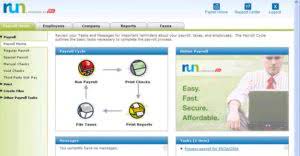
Outstanding checks are a liability for the payee, but once deposited, they are reconciled against the recipient’s account. If a payee receives a check and does not present it for payment at once, there is a risk that the payer will close the bank account on which the check was drawn. The payee’s bank will then reject the check due to not sufficient outstanding check definition funds, and will charge the payee a fee. In this situation, the payee will need to ask the payer for a replacement payment from a valid checking account, and may demand compensation for the NSF fee. The payment goes on the general ledger, but businesses must make adjustments during reconciliation, and they may need to reissue stale checks.
Knowing when a check expires is an initial step before deciding whether to write a new check. If a check is outstanding for less than six months, you should not write a new one. If more than six months have passed, that check may well be expired and considered void. A new check would have to be written or another method of payment could be used. It’s when the payee neglects to cash or deposit a check (or the check gets lost). This means the check does not clear and does not show on a month-end bank statement.
What happens to an uncashed personal check?
To reconcile outstanding checks with your bank statement, compare the checks issued but not yet cleared with the information provided on the statement, ensuring that both records align. On your reconciliation sheet, outstanding checks are often subtracted from your balance per bank because these withdrawals have not yet happened but are simply a timing matter. However, for certain types of accounts up to 18 months of account activity may be available by choosing the time frame you want and selecting Download. Other errors can include withdrawals or deposits not noted in your company’s books and bank errors. It’s common to have differences between the amount recorded in the general ledger and the bank statement, but these differences should be accounted for in the reconciliation.
- First, let’s start with a clear explanation of what outstanding checks actually are.
- In the bank reconciliation, outstanding checks are deducted from the balance per bank.
- It is worth noting that outstanding checks are different from voided checks.
- When you ask them how they want to be paid, try suggesting a money order, cashier’s check, or cash.
- This documentation will come in handy if you need to prove to state regulators that you made reasonable attempts to complete the payment.
Both a certified check and a cashier’s check are considered more secure checks than personal checks. Cashier’s checks are signed by banks and drawn against a bank’s account, while certified checks are signed by an individual and drawn against a personal account. Another type is a payroll check, or paycheck, which an employer issues to compensate an employee for their work.
Definition of Outstanding Checks
Businesses can impose a policy requiring employees or recipients to deposit or cash their cheque within a specified time frame. Uncleared check issues can lead to legal disputes, fraud-related charges, and poor accounting records. You should take all reasonable steps to cash or deposit outstanding checks.

You should discuss your personal situation with a tax or legal professional. If they haven’t received the payment, this may nudge them to notify you to reissue the check. Last, outstanding checks might have an impact on management of the cash flow. If the outstanding check has expired, you may want to write another check; however, it’s possible that this check will go stale, too, and that would prolong the situation.
Comment (0)